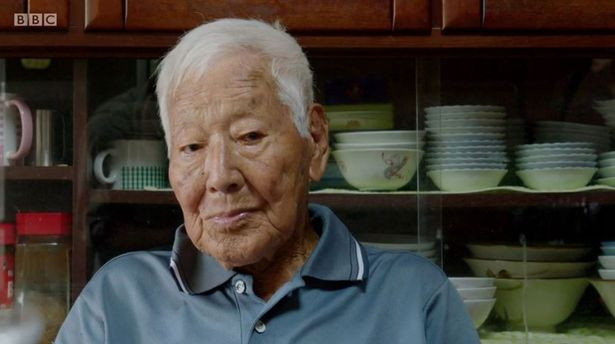Sweet potatoes will 'help you live to 100', BBC1 documentary discovers

Okinawa Island of Japan has been linked with longevity for quite some time, boasting the largest number of centenarians in the world thanks to their diet rich in fruit and vegetables with minimal meat, fish and dairy consumption. The fascinating BBC1 television series, How To Stay Young, has championed a plant-based diet in previous episodes by linking it to long and disease-free lives.
Tuesday night's episode (19 April) took a closer inspection at the humble sweet potato that is eaten in abundance in Okinawa, where over 1.385 million live (they'll need a lot of potatoes) and how it could keep you bright-eyed and bushy-tailed until you pop off.
Viewers saw Angela Rippon and Dr Chris van Tulleken delve into the Japanese diet for the BBC1 programme, sussing out what foods can give the brain a boost, including how injections of young people's blood may help beat dementia. Their queries were answered, however, when they took a trip to Okinawa and took one glance at the wrinkle-free 103-year-olds compared to the obese burger-devouring 20-somethings we're more accustomed to.

Professor Craig Wilcox, who has been studying the Okinawan diet and its benefits for the last decade, believes their constant guzzling of sweet potatoes is the key to their vigorous health. He said: "Sweet potatoes have been a go-to food for the Okinawans for a long time. They are easy to grow and they are very economical to producers, and they are powerhouses of nutrition."
An old and wise 100-year-old local, who still motorbikes around his town and spends time with his family, was the proof in the dairy-free pudding that a plant-based lifestyle is the way to go, simply stating: "Food is medicine," and had nothing but praise for the sweet potato, continuing: "It makes me feel really refreshed." Right you are.
How To Stay Young revealed that the average Okinawan eats a ginormous amount of sweet potato, reporting that they consume over half a kilo each. Wilcox said: "It's not an ice cream truck that visits your street, it's the sweet potato truck... and Okinawans love purple sweet potato ice cream."
The Okinawa study, first instituted throughout Japan in the 1870s, is based on solid evidence and is reliable age-verification data, showing that Okinawa's elders above 70 years old and centenarians in particular have experienced a slower age-related decline. They generally avoid chronic diseases of ageing such as Alzheimer's Disease, cardiovascular disease and cancer.
© Copyright IBTimes 2025. All rights reserved.






















